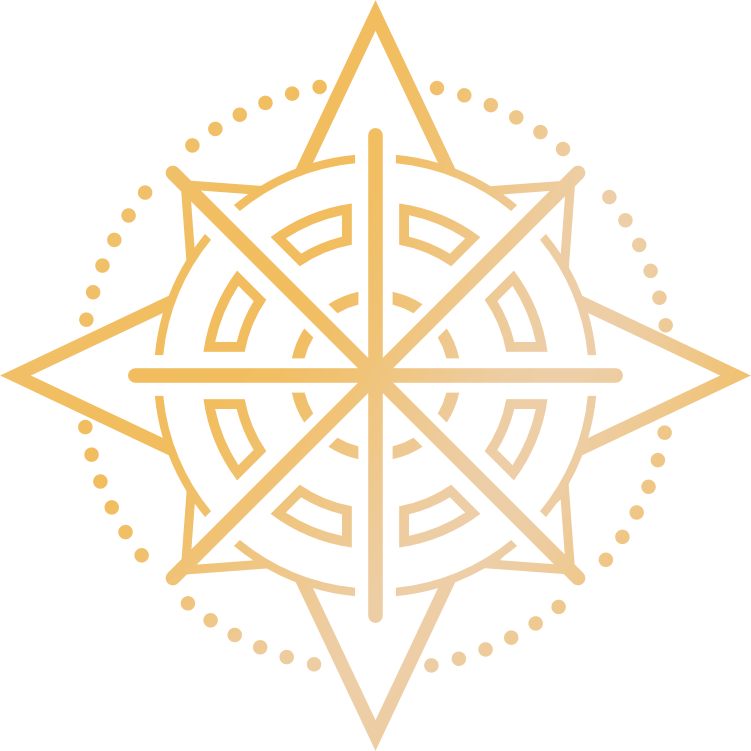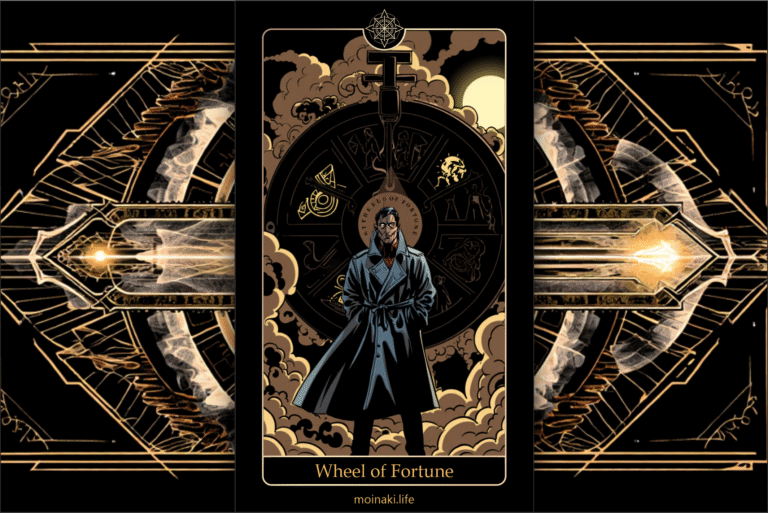Four of Swords
Life often moves at a relentless pace, pushing us to do more, achieve more, and never stop. In this whirlwind, it’s easy to lose touch with our inner world. The Four of Swords card from the tarot deck arrives as a gentle but firm reminder: sometimes, the most productive thing we can do is pause, reflect, and rest.
Context of the Card: Four of Swords
The Four of Swords often depicts a figure lying down, hands clasped in prayer or contemplation, surrounded by swords. The setting is quiet, calm, and almost sacred—suggesting a temporary withdrawal from the noise of everyday life. There’s no chaos here, only stillness. In traditional tarot, this card follows the turbulence of the Three of Swords (pain, heartbreak, mental anguish), offering a necessary break to process, heal, and regain strength.
“Rest is not idleness, and to lie sometimes on the grass under trees on a summer’s day, listening to the murmur of water, or watching the clouds float across the sky, is by no means a waste of time.” — John Lubbock
Core Meanings: Upright & Reversed
Upright Four of Swords
- Rest and Recovery: Taking a break to heal physically, mentally, or emotionally.
- Reflection: Stepping back to process recent experiences or conflicts.
- Solitude: Seeking quiet time alone to recharge.
- Preparation: Gearing up for future challenges by conserving energy now.
When this card appears upright, it’s a clear invitation to pause. It’s not about giving up, but about honoring your need for rest so you can move forward with clarity and resilience.
Reversed Four of Swords
- Restlessness: Difficulty slowing down or relaxing, even when needed.
- Burnout: Ignoring signs of fatigue, risking emotional or physical exhaustion.
- Overthinking: Mental overload, looping thoughts without resolution.
- Avoidance: Using busyness to avoid facing difficult emotions or truths.
In the reversed position, the card signals a warning: rest is overdue. It may also point to resistance—perhaps you’re pushing yourself too hard, refusing to acknowledge your limits, or distracting yourself from what you need to feel and process.
Psychological Application in Modern Life
The Power of Intentional Rest
In a culture that glorifies hustle and constant connection, rest can feel counterintuitive or even uncomfortable. The Four of Swords teaches us that rest is not weakness—it’s a vital part of growth and healing. Psychologically, it’s about recognizing when you need to step back, honor your boundaries, and allow your mind and body to recover.
This card is especially relevant if you’re feeling overwhelmed, anxious, or stuck in cycles of rumination. It reminds you that clarity often emerges in quiet moments—not when you’re in the thick of action, but when you give yourself space to breathe.
When to Embrace the Four of Swords Spirit
- After a period of intense stress or change
- When you notice signs of burnout or irritability
- If you’re overthinking or feeling emotionally drained
- During times of uncertainty, when answers aren’t immediately clear
“Almost everything will work again if you unplug it for a few minutes, including you.” — Anne Lamott
Work, Emotions, and Self-Care
At work, the Four of Swords may show up when you’ve been pushing deadlines, juggling responsibilities, or dealing with conflict. It’s a signal to step away and recharge—even a short break can restore perspective and creativity.
Emotionally, this card invites you to allow feelings to surface without judgment. It’s about giving yourself permission to be still, rather than constantly “fixing” or “doing.” This stillness can help you process grief, disappointment, or confusion, so you can eventually move forward with more wisdom.
Practical Steps: Integrating the Four of Swords
Concrete Exercises for Mindful Rest
-
Scheduled Pause:
Set aside 10–15 minutes each day for intentional rest. No screens, no to-do lists—just sit or lie down, breathe, and notice how you feel.
-
Reflective Journaling:
Ask yourself: “What do I need right now to feel restored?” Write freely without editing your thoughts. This can help you identify hidden sources of stress or unmet needs.
-
Body Scan Meditation:
Lie down comfortably. Starting from your toes and moving upward, notice sensations in each part of your body. Where do you feel tension? Where do you feel ease? This exercise can ground you in the present and reveal where you’re holding stress.
-
Unplug Ritual:
Pick one evening a week to unplug from digital devices. Use this time for gentle activities that nourish you: reading, taking a bath, listening to calming music, or simply being.
For Times of Overwhelm
- Check in with yourself: Are you pushing through pain or fatigue out of habit? What would it be like to rest instead?
- Practice saying no: Give yourself permission to decline extra commitments. Your health matters.
- Reach out for support: Sometimes rest includes asking for help—whether from friends, family, or professionals.
Final Thoughts: The Mirror of the Four of Swords
The Four of Swords isn’t about giving up. It’s about making space for healing, clarity, and renewal. By honoring your need for rest, you cultivate resilience—not just for yourself, but for those around you.
“Caring for myself is not self-indulgence, it is self-preservation.” — Audre Lorde
Remember, tarot is not fortune-telling — it’s a mirror for reflection and growth.

